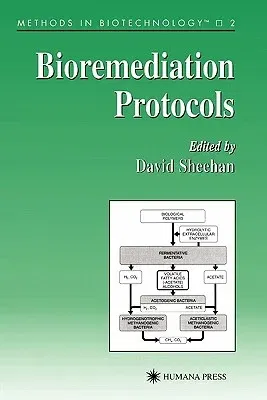The many thousands of human-made and other chemical compounds present in
the environment offer a serious challenge to our btosphere. It is
appropriate, therefore, that our response to these products of human
kno- edge and ingenuity should draw on a body of mtenstve scientific
endeavor that is no less impressive. Bioremediation offers the
possibility of harnessing the diversity of the biosphere to degrade,
remove, alter, or otherwise detoxify these various chemicals. It brings
together scientists from a wide variety of disciplines and backgrounds,
such as microbiology, molecular biology, a- lytical chemistry, and
chemical and environmental engineering, among o- ers. These different
fields, each with its own individual approach, have actively contributed
to the development of bioremediation research tn recent years. The
prmcipal objective of Bioremediation Protocols is to make the fruits of
some of this research available in a different format to that of the
textbook or journal article. It provides a selection of clearly written
laboratory pro- cols presented as stepwise, easy-to-follow mstructions.
In common with p- wous volumes in this and the companion Methods in
Molecular Biology series, an extensive "Notes" section is provided with
each chapter. This contains u- ful mformation (of a type often not
normally included m a research paper) supplementmg the protocol. Reviews
and case studies are also included to provide a deeper context to the
methods chapters.


